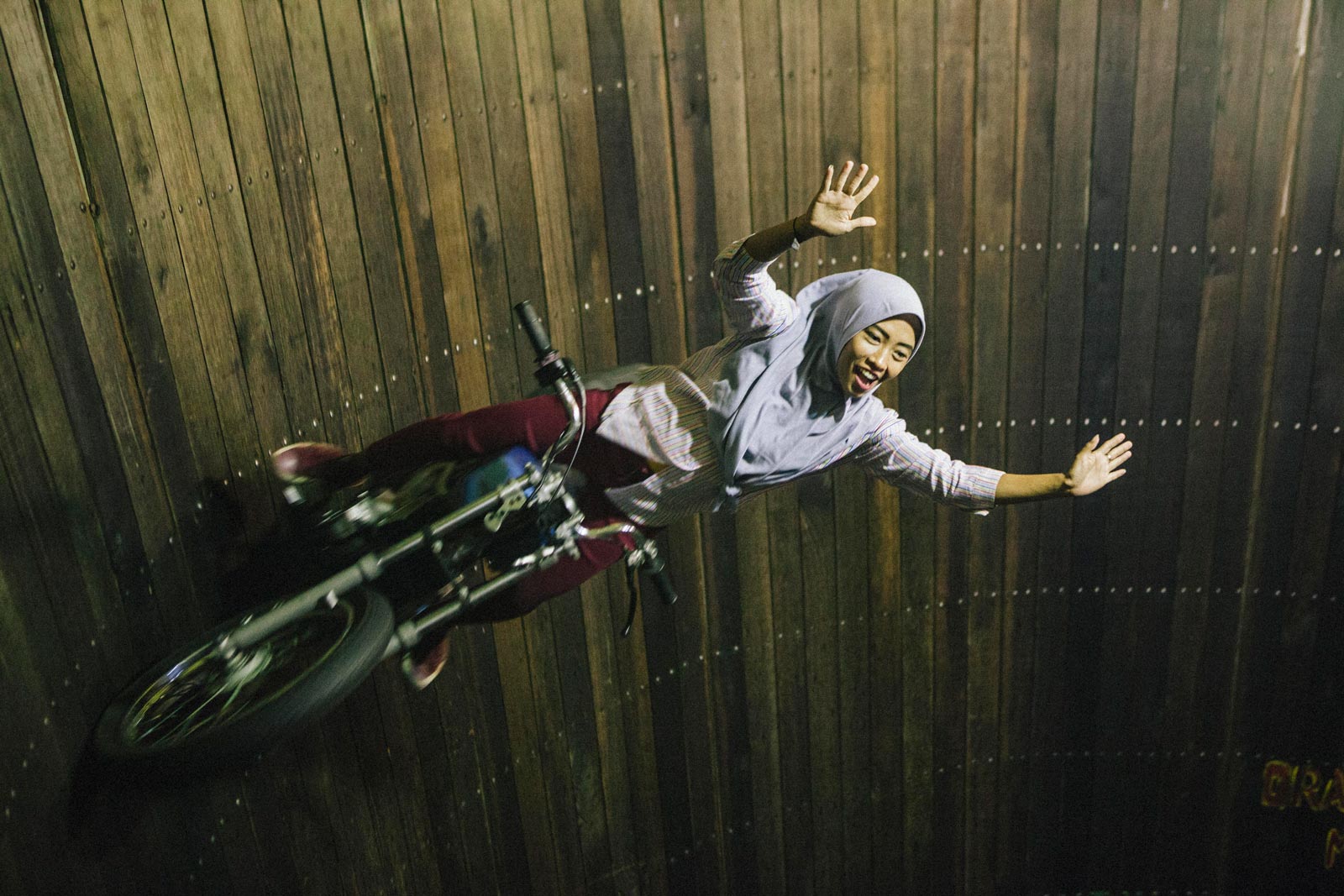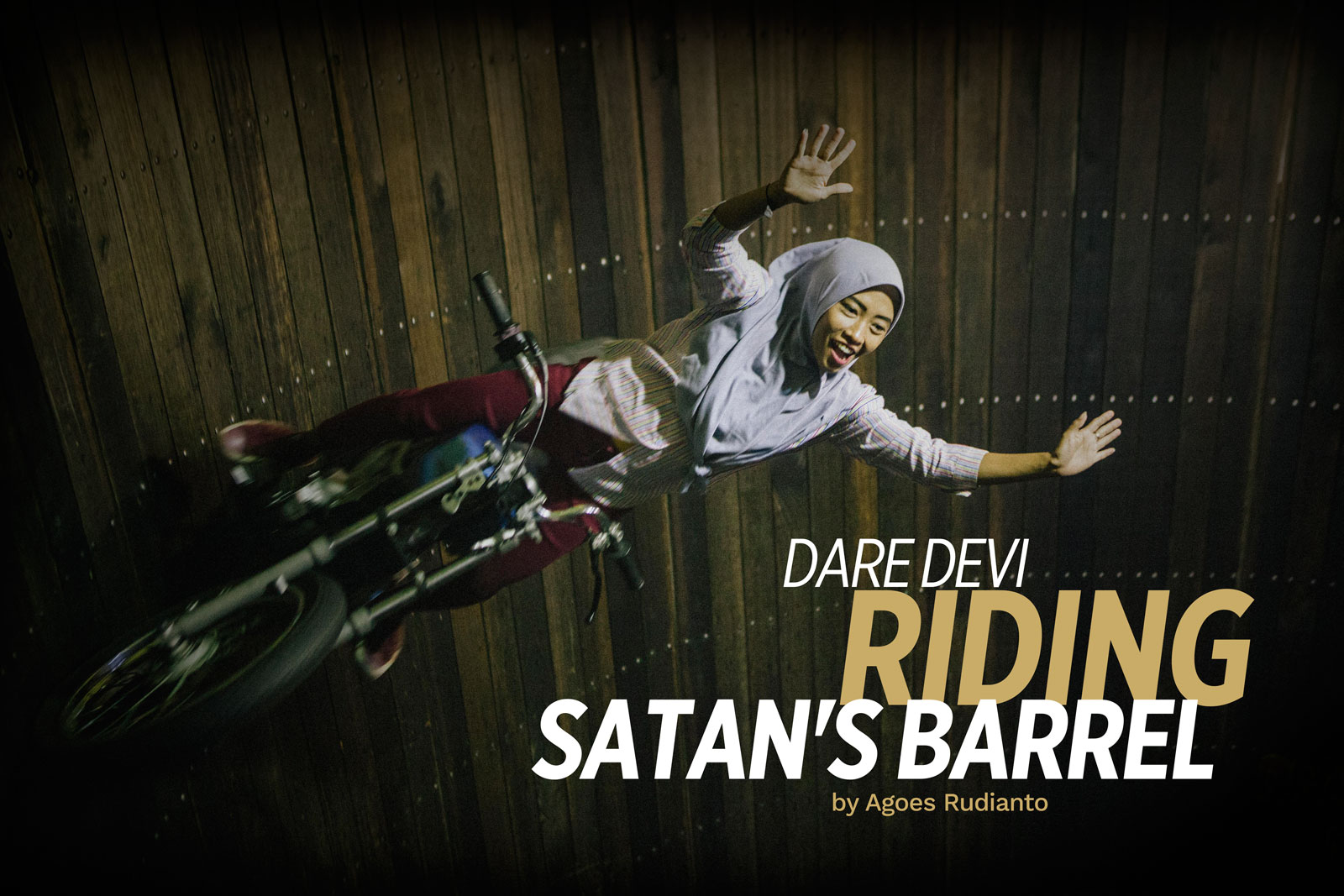
Each night, 20-year-old stunt-rider Devi Apriliyani rides "Satan's Barrel" as her husband and daughter look on. An already controversial act in socially conservative Indonesia, one fact complicates matters further – she is pregnant.
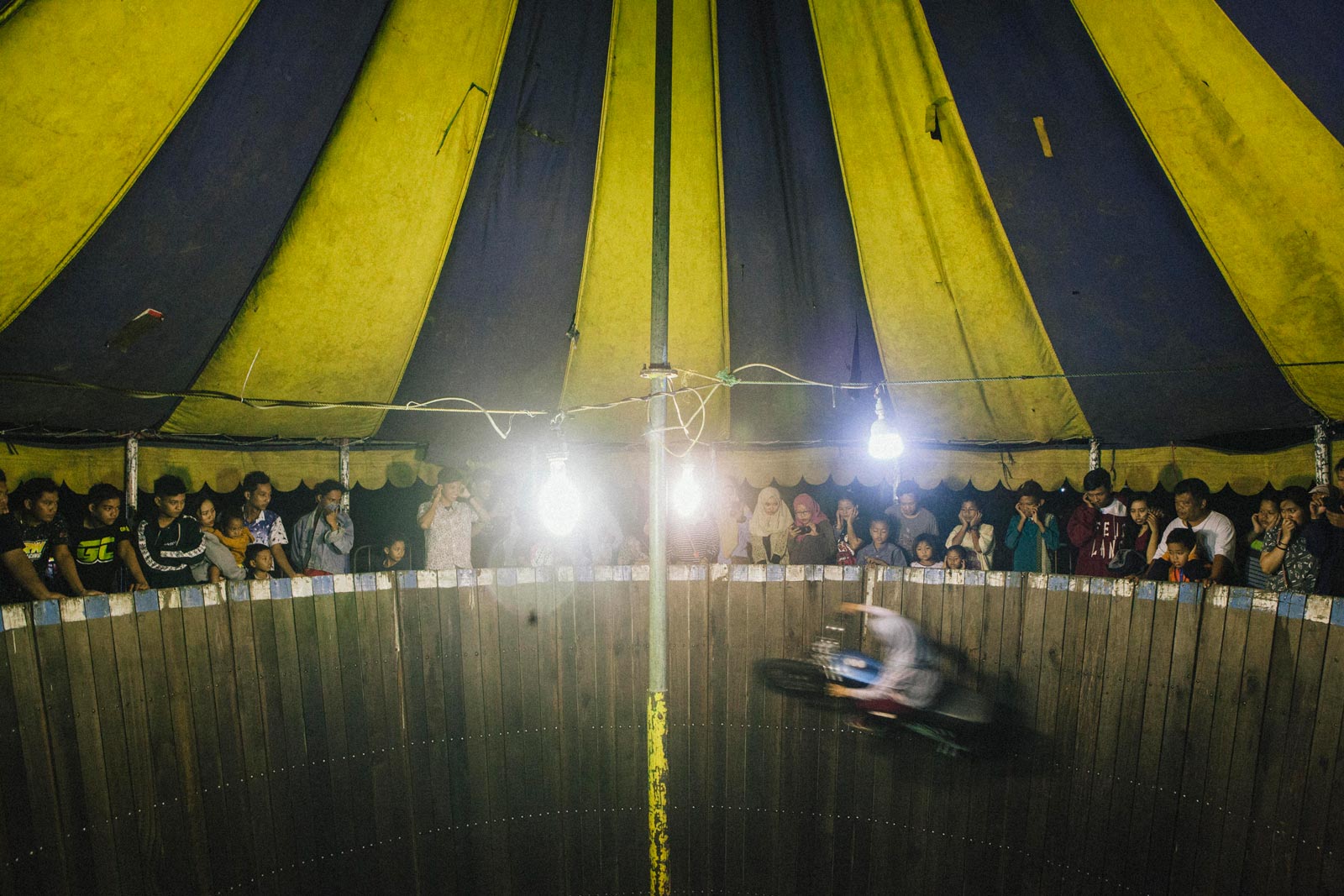
The tinge of sunlight on the horizon is replaced by the glow of light from several hanging diesel-powered lamps at a pasar malam (night market) in Surakarta, a city in Indonesia’s Central Java region.
With loud pop music blaring out of speakers and garish flickering colours of carousels, miniature roller coasters and ferris wheels, the carnival – only in town temporarily before moving on to another part of the vast archipelago country – is an assault on the senses.
Outside one tent, dozens of eager visitors queue to enter the carnival’s main attraction, tickets bought for 10,000 Indonesian rupiah ($0.70) clasped in hand. The audience streams in to claim their spots, shoulder to shoulder, on the crowded edge of the wooden barrel.
The roar of motorcycles bellows out from inside the tent, which houses a 5m-high drum called Tong Setan (Satan’s Barrel) – known in other parts of the world as the Wall of Death. Some in attendance, mainly the children, clasp their ears to drown out the excruciating noise being emitted from several Yamaha RX King 150cc motorbikes – exhaust pipes removed to magnify their sound and brake cables cut – making their way around the barrel at speeds exceeding 50mph.
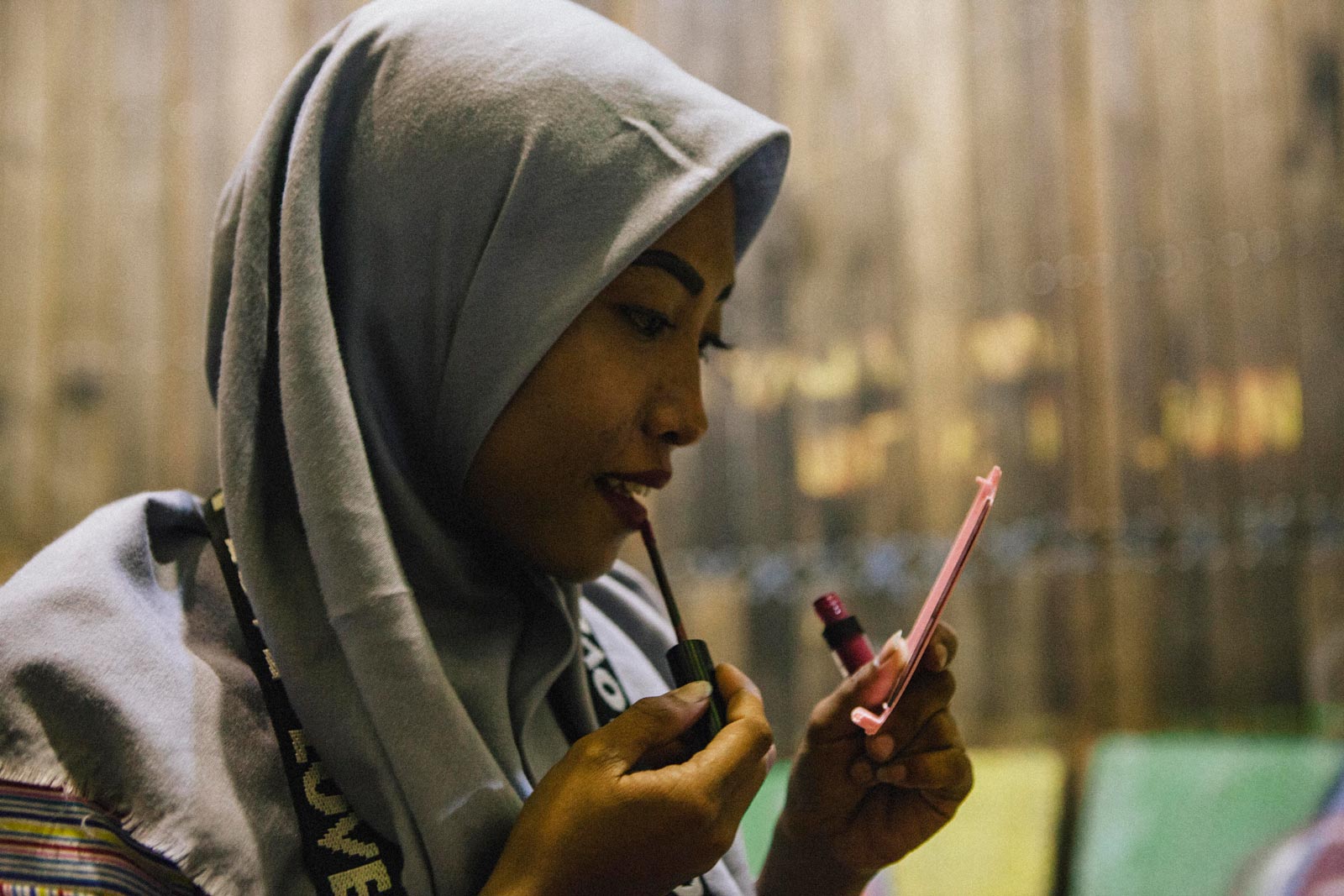
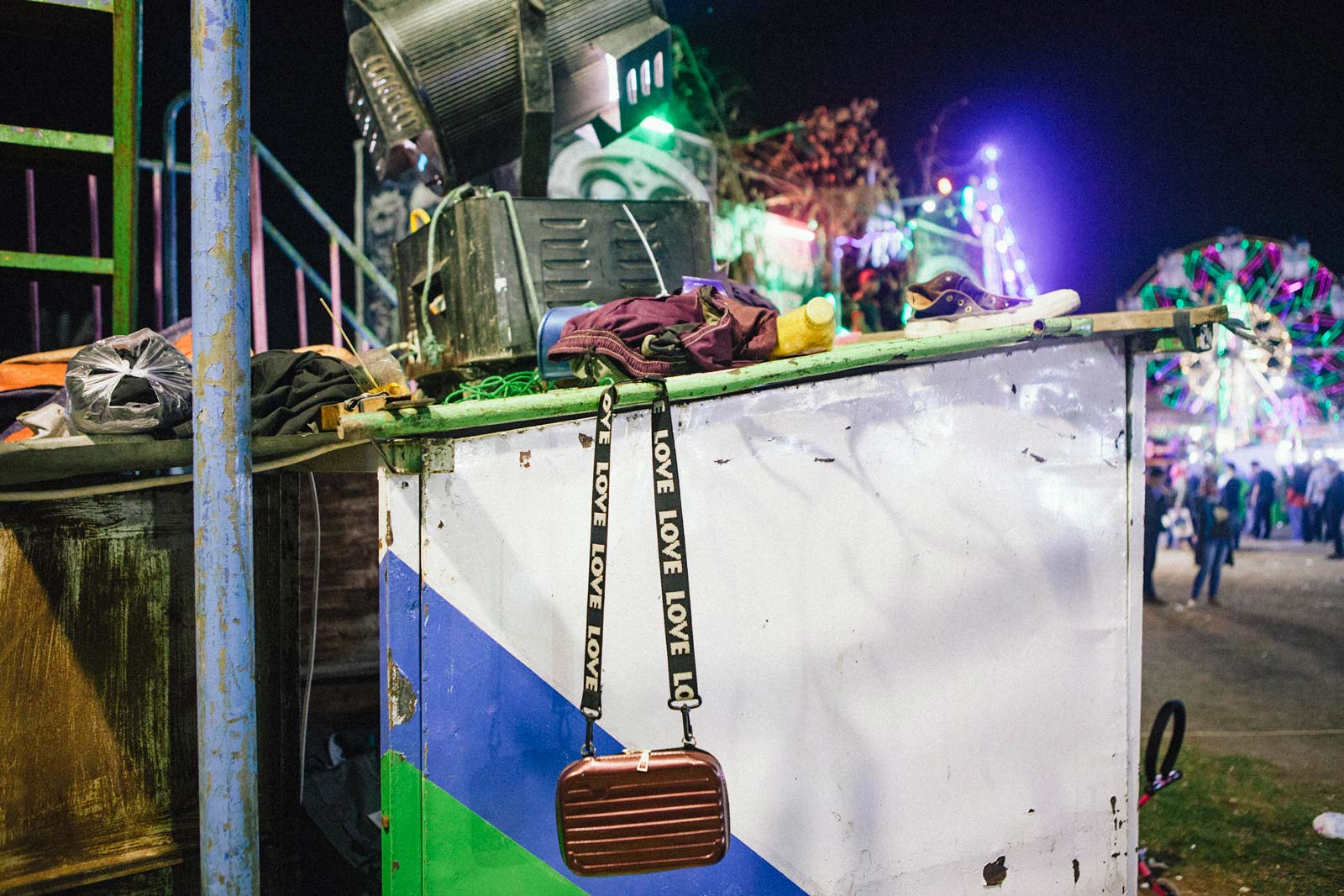
Rarely removing their hands from the accelerator, two riders snake around the barrel’s central vortex, one hand steering the bike while the other is used to reach the yellow, green and – if they’re lucky – red banknotes waved by the gesticulating crowd. The added risk of serious injury just to claim their tips is an accepted hazard of the job.
I want to be different, I want to show that women can also work [in dangerous jobs] like men. Not all men can and dare to work like this
Devi Apriani
Among the many riders circling the barrel that night, one stands out among them – Devi Apriliyani, a slight, softly-spoken 20-year-old woman sporting a light blue hijab, who commands the attention of the crowd.

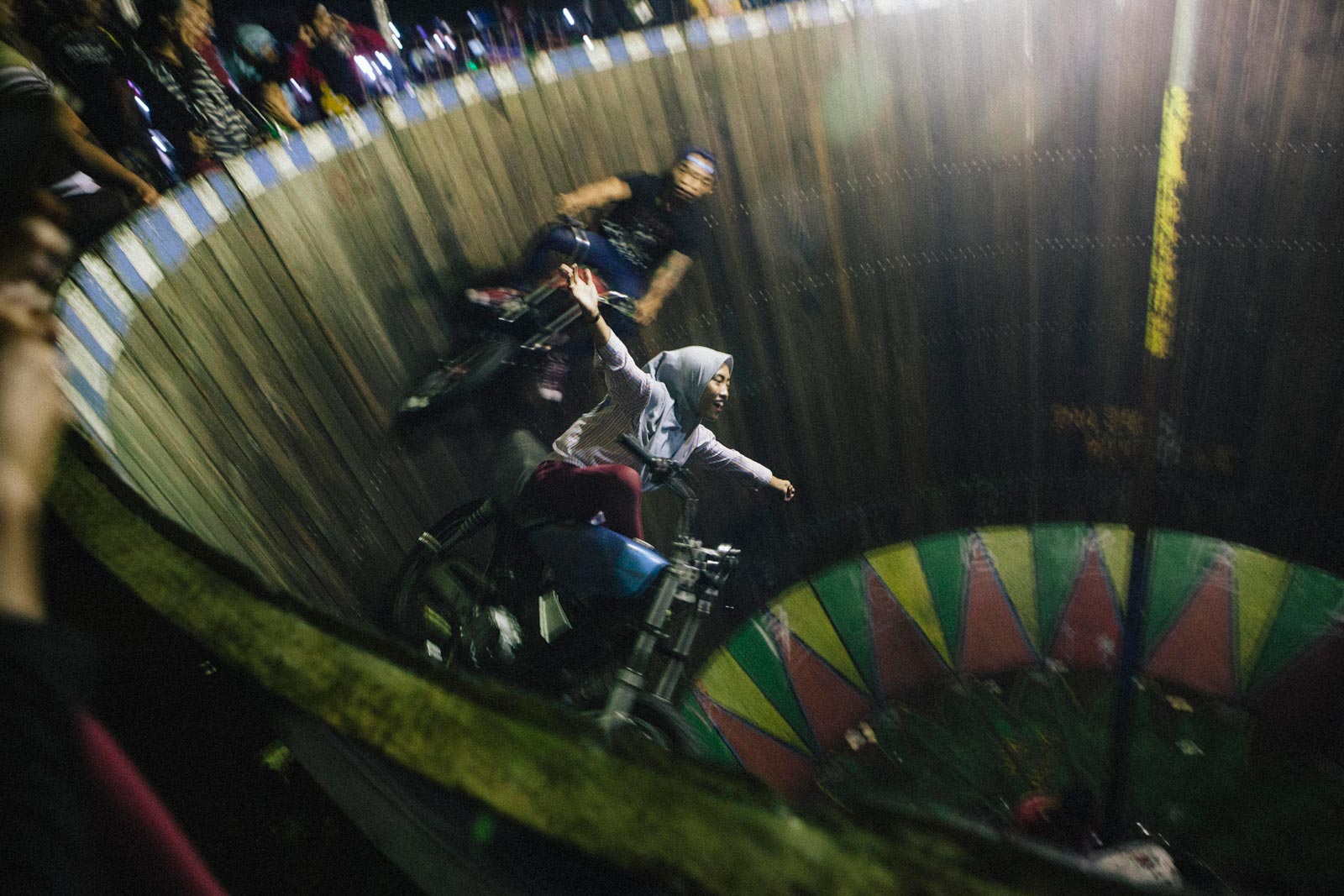
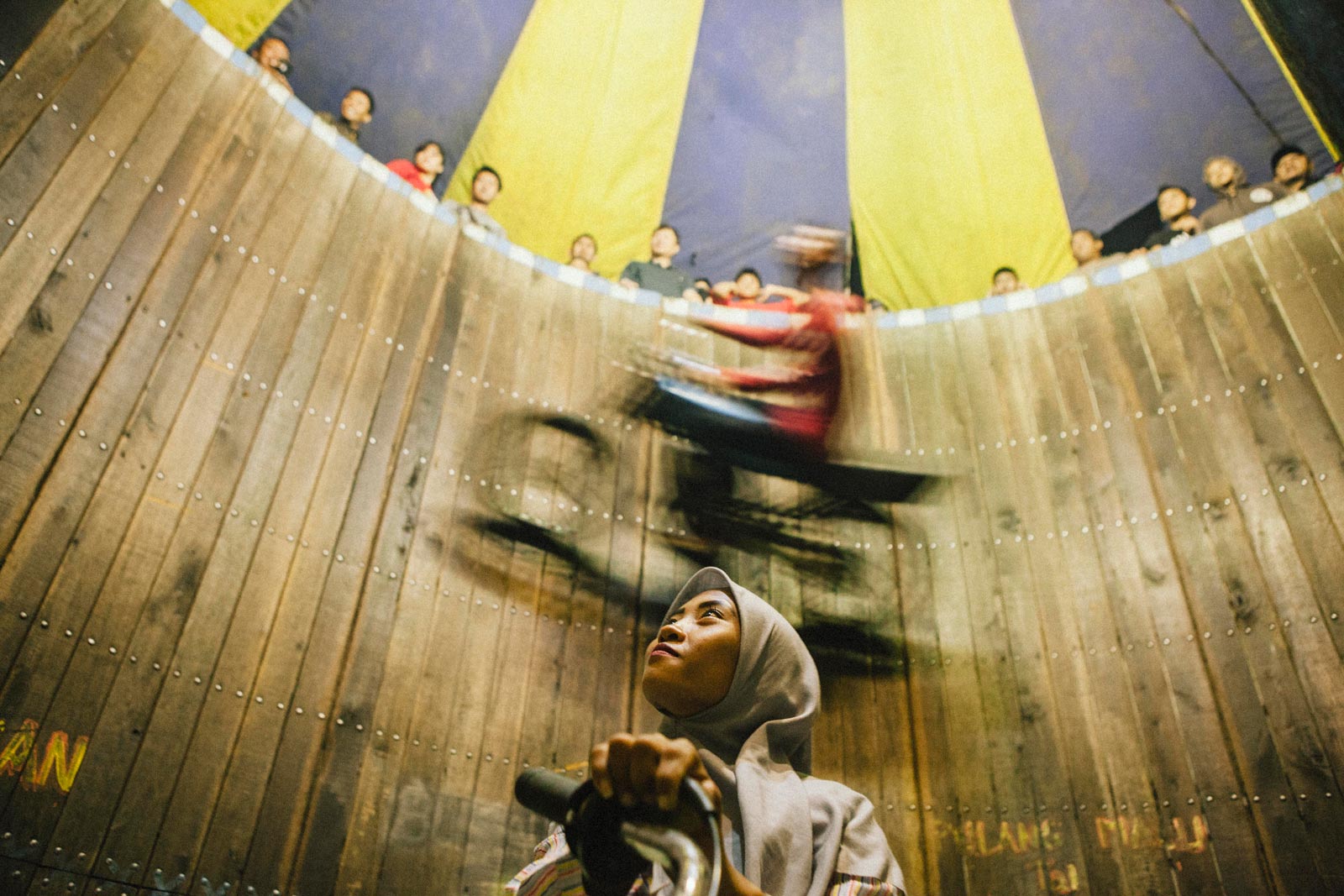
Having started stunt-riding three years ago, inspired by her step-brother, Devi pursues her fortune challenging death each evening at night markets set up around the nation with her travelling carnival. She sometimes does 300 shows a month, putting her life at stake for meagre but essential sums as her husband, Ahmad Herdiansyah Daulay, and two-year-old daughter watch on.
“Being one of the workers in a travelling carnival, I am constantly going to various regions in Indonesia, something that I have never done before,” she tells Southeast Asia Globe. “But my dream is to be able to do attractions abroad.”
In Indonesia, rightly or wrongly carnivals, and those who work in them, hold a less-than savoury reputation for drug use, alcohol and crime. And as one of the very few women in a predominantly male industry famed for being rough around the edges, she has made a point of continuing to wear her headscarf during shows.
“I want to be different, I want to show that women can also work [in dangerous jobs] like men. Not all men can and dare to work like this,” she says.
The breadwinner
While the sight of a woman performing such an ostentatious and dangerous job in socially conservative Indonesia is a noteworthy enough occurrence, her perilous career choice takes on greater dimensions when one additional fact is considered: Devi is pregnant.
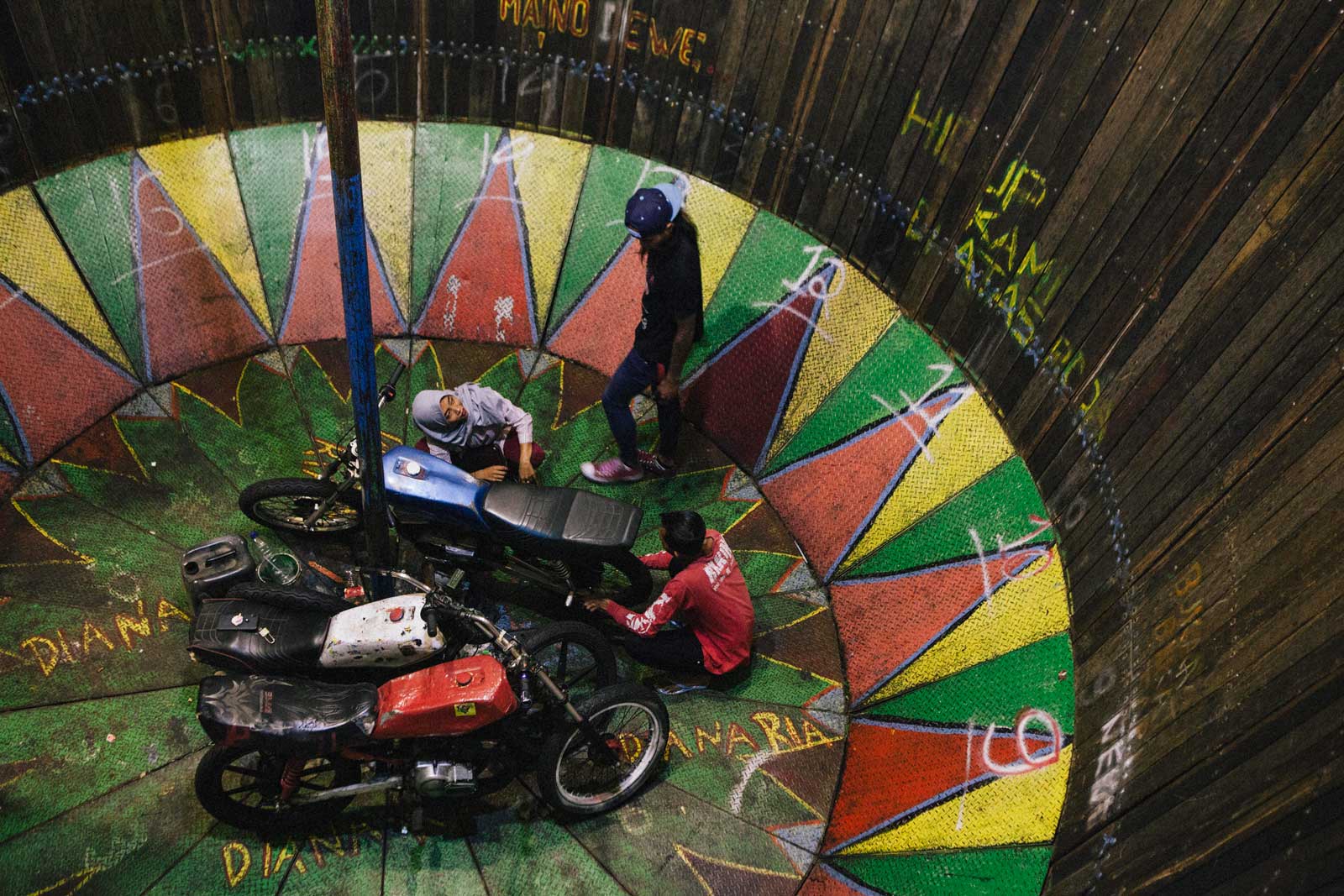
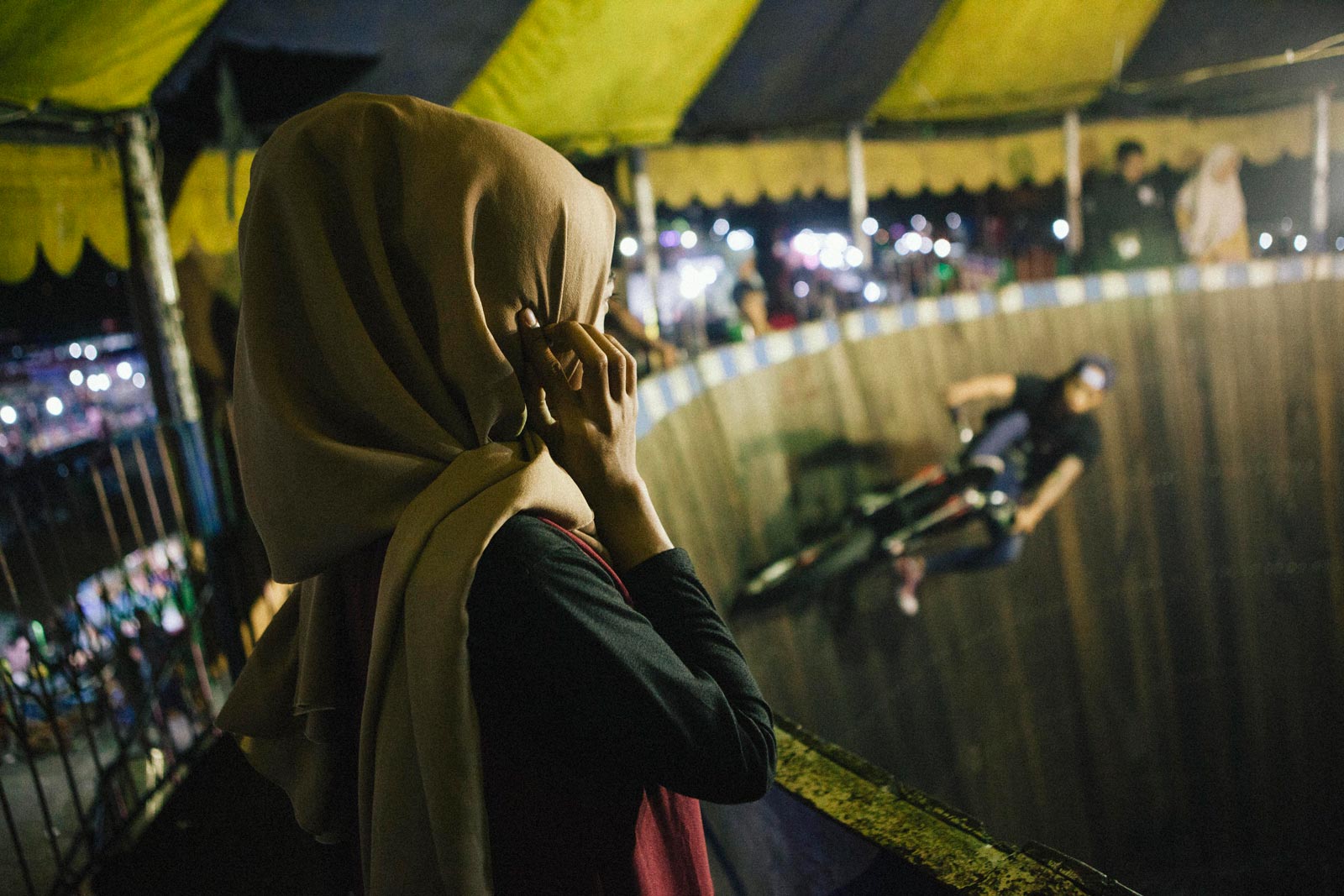
As the family’s leading breadwinner she has little choice but to continue, but both Devi and her husband are fully aware of the dangers that her work poses for her and the unborn child.
“I once fell from a motorcycle while in action, got blisters on my hands and broke a bone in my shoulder. As a result, I had to stop playing for a few weeks for recovery. I still feel pain sometimes now,” she says.
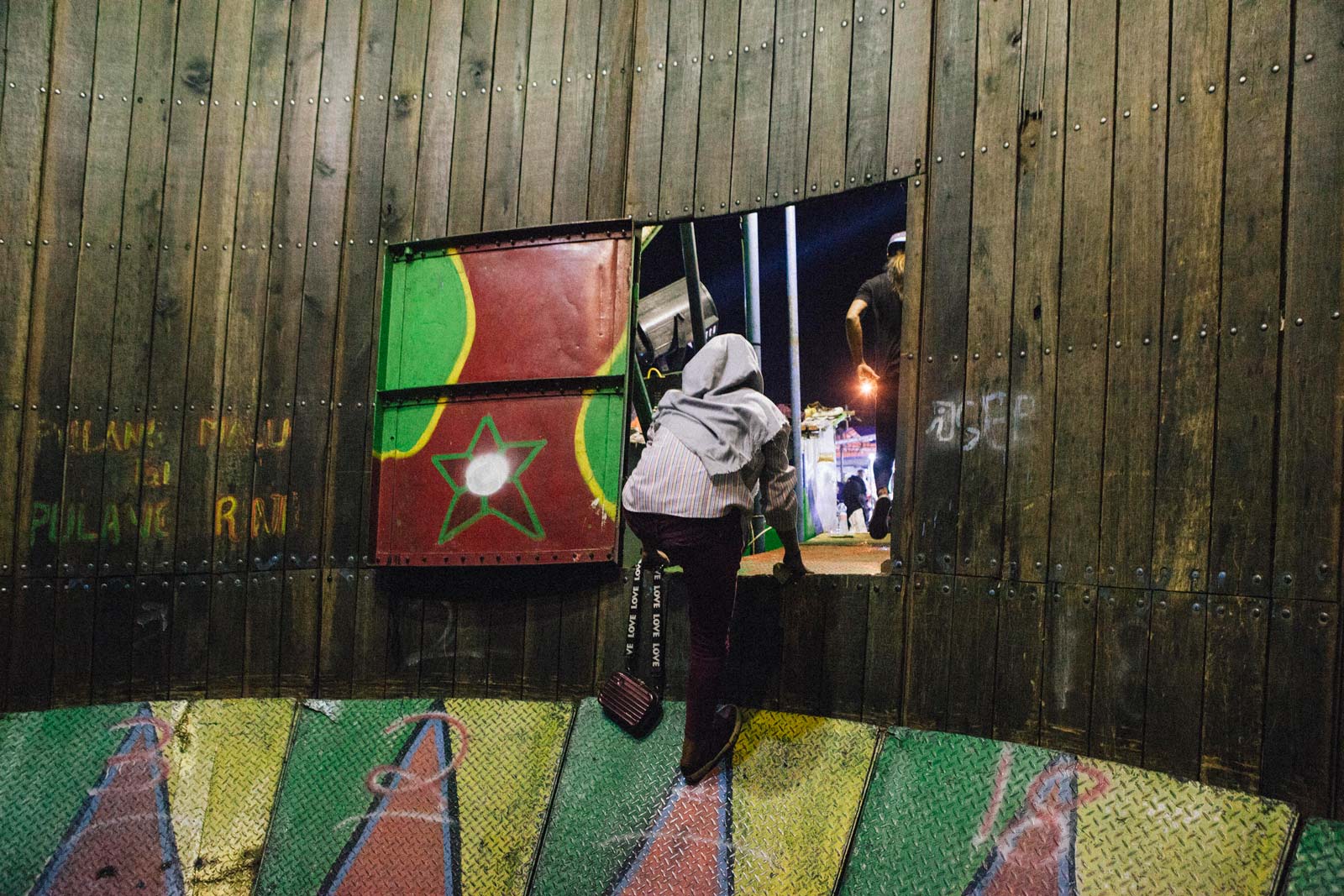
Devi’s home province of Aceh is the most religiously conservative in Indonesia. Owing to its semi-autonomous status, it is the country’s only region that is permitted to implement sharia law, and the harsh Islamic criminal code, first enacted in 2006, results in regular public floggings for adultery, drinking alcohol, and having gay or premarital sex.
Little wonder then that Devi is yet to tell her already disapproving parents back in her home province that she is pregnant for fear of their, and her community’s, judgement.
Devi says that she regularly has dreams in which she is living a life more akin to the traditional notion of the Indonesian housewife. In these dreams she prepares food for her family, waits for her husband to return from work, then spends the evening joking and resting.
My earnings keep my family together. We use the money to pay for our daily needs, like buying meals and pampers for my daughter
Devi Apriani
But currently, this humdrum existence remains impossible for her, with Devi’s family reliant on her income to survive.
“My earnings keep my family together. We use the money to pay for our daily needs, like buying meals and pampers for my daughter,” she says.
Devi regularly swaps between carnivals, working a one-month contract here, then later moving to another carnival. In contrast to the resistance felt in her home community, as a female stunt-rider she is in hot demand in the industry – both with the companies who hire her and the carnivals that showcase her.
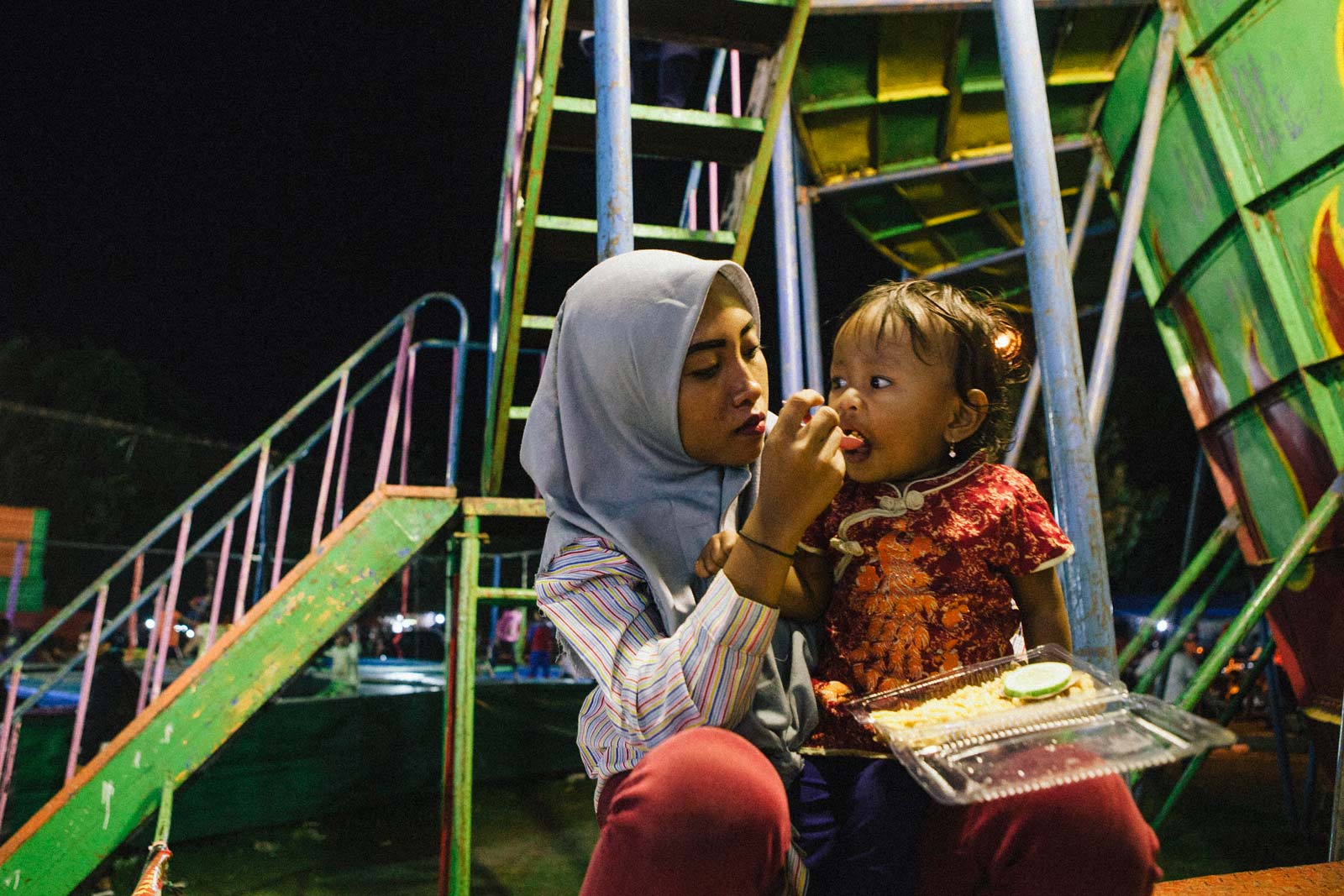
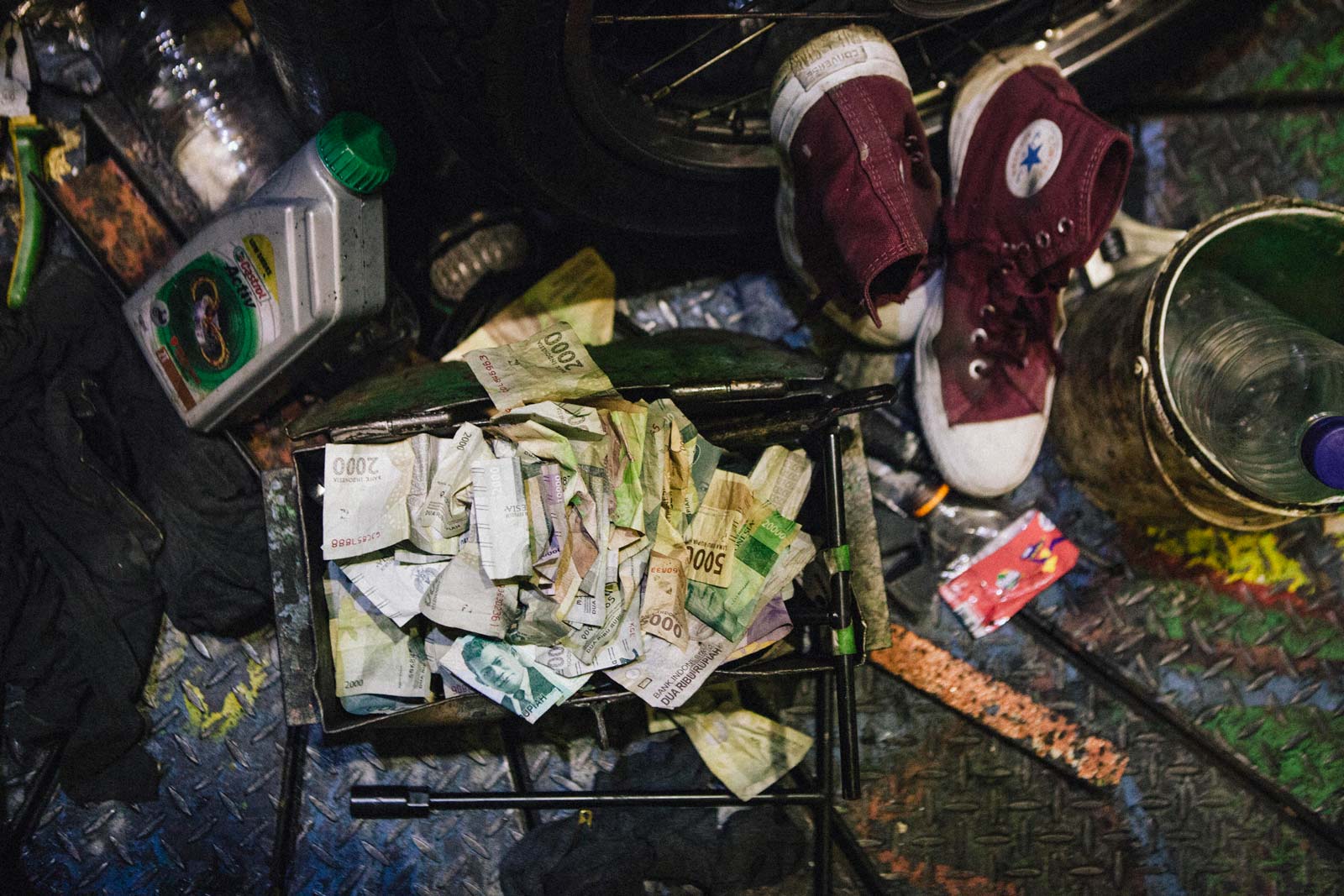
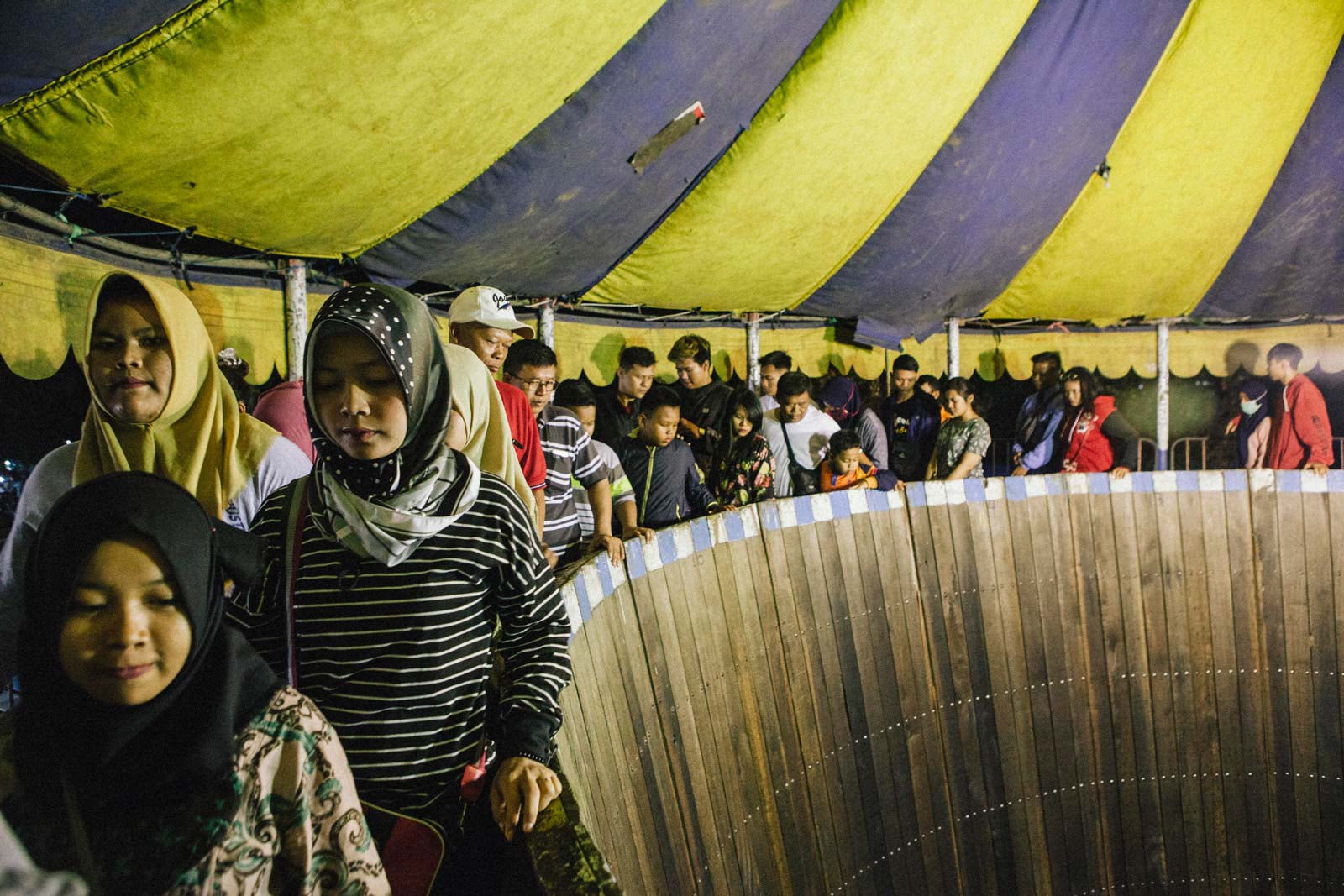
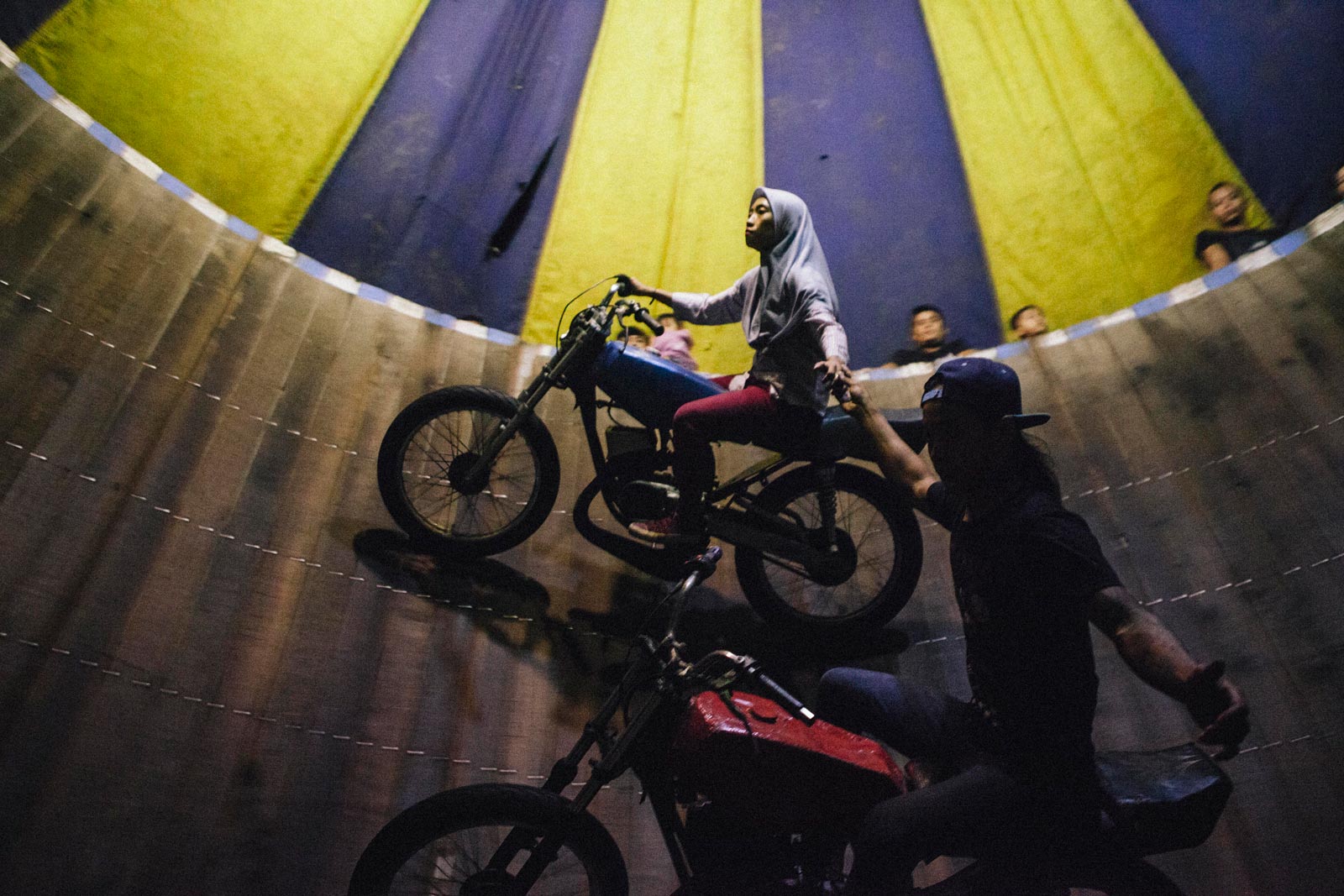
“I have a good relationship with all the other workers at the carnival. There is no competition here as we are all dependent on each other, and the female stunt-riders boost audience numbers,” she says, adding that the male stunt-riders help her fix her motorbike if it has issues.
Working as a “jockey”, the name given to stunt-riders, Devi gets paid a flat rate in the region of 4,000,000 rupiah ($280) per month. In one of the few instances in which the gender pay gap has worked in favour of women, Devi says this is often twice as much as her male counterparts earn.
“My income is based on the agreed monthly work contract at the beginning. But I get paid more than male stunt-riders, sometimes twice as much, as my boss thinks that female jockeys bring in much bigger audiences.”
This popularity with the punters extends to the tips when Devi does the rounds during her performance, as, arm outstretched, she grabs rupiah notes by the fistful as male onlookers revel at the sight of a woman doing such unconventional work.
Devi’s at once represents both a story of female empowerment – resisting gender norms in a conservative culture and earning more money than her male counterparts – and a woman craving a more traditional existence. And while Devi, in the early stages of pregnancy, will soon be forced to take a hiatus from riding, long term she is conflicted on her future.
Asked when she will stop, she says that the decision is out of her hands.
“Perhaps when my child asks, ‘hi mum, why do this kind of dangerous work? Are you not afraid of the danger?’”
All images by Agoes Rudianto
